Deportes electrónicos
Mujeres en los eSports: desafíos y logros destacados
Descubre cómo las mujeres en los esports superan desafíos y alcanzan la grandeza en los videojuegos móviles. Descubre estrategias impactantes, ejemplos a seguir, victorias reales y pasos para construir equipos inclusivos y de alto rendimiento.
Anuncios
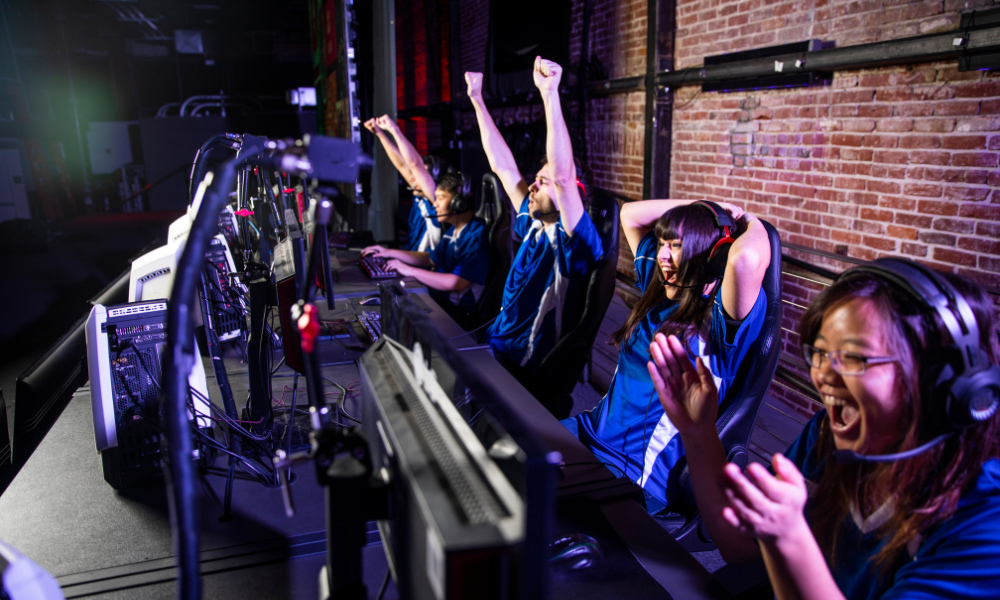
Entra en cualquier evento de juegos y notarás el entusiasmo, la habilidad y el impulso que definen los juegos competitivos; y sí, las mujeres en los deportes electrónicos están haciendo contribuciones vitales a esta industria de alto riesgo.
Los debates sobre la representación son importantes. Los esports, especialmente los juegos para móviles, ofrecen espacio para perspectivas únicas y talentos diversos. La inclusión continua de las mujeres enriquece el panorama global de los videojuegos, impulsando la innovación y la estrategia.
Si te interesa comprender la evolución de la historia de las mujeres en los esports, con sus obstáculos, progreso y lecciones concretas, quédate con nosotros. Explora información crucial y aprende estrategias prácticas basadas en experiencias reales.
El impacto de las jugadoras: estableciendo nuevas expectativas en los eSports
Comprender la visible influencia que las mujeres ejercen en los esports permite a los lectores evaluar tanto las tendencias en evolución como las tradiciones más arraigadas. Las tasas de participación y el rendimiento están cambiando los estándares de la industria en muchos tipos de juegos, en particular en los escenarios móviles.
Los equipos y desarrolladores de esports que reconocen el talento femenino logran un público más amplio y una química de equipo más rica. Estos resultados son evidentes. Cuando Lina se unió a su equipo de Battlegrounds para móviles, todos notaron que su metódico estilo de comunicación estaba transformando las tácticas del grupo en el juego.
El reclutamiento inclusivo mejora la dinámica del equipo
Los reclutadores que buscan mujeres en los esports pueden aprender de los equipos exitosos que invitan intencionalmente a jugadoras a las discusiones de sus plantillas y a sus equipos de práctica. Esto es lo que un reclutador de élite podría decir: "Muéstranos tus resultados en la cola individual clasificatoria y cuéntanos tu último momento decisivo".
Las pruebas abiertas muestran más que solo habilidad mecánica; revelan estilo de comunicación, control emocional y disposición a aceptar retroalimentación, cualidades en las que las atletas de deportes electrónicos femeninas sobresalen habitualmente y contribuyen durante los partidos móviles de ritmo rápido.
Las organizaciones se benefician al utilizar estos registros de reclutamiento específicos. Paso concreto: Rotar los roles de liderazgo en cada sesión de práctica para descubrir talento estratégico oculto y fomentar la confianza general, independientemente del origen o el género.
Multitudes y cultura: los modelos a seguir visibles importan
La primera vez que un aficionado asiste a una final y ve a mujeres en los esports, en primera fila, el entusiasmo es contagioso. Los jóvenes gamers móviles que buscan íconos con los que identificarse toman nota, absorbiendo tácticas específicas del juego y la confianza en su lugar.
Los comentarios en directo también cambian; los comentaristas se basan en la estrategia, no en el género, al analizar la sincronización perfecta de un jugador de soporte móvil de primer nivel. Comentarios como «Esa rápida rotación de Mei cambió el metajuego» normalizan la experiencia, independientemente de los estereotipos.
Los torneos que acaparan titulares con equipos con una fuerte presencia femenina muestran a los jugadores aspirantes que hay lugar para todos, inspirando a aquellos que podrían haber dudado de su lugar en la escena competitiva.
| Jugador | Región | El mejor juego para móviles | Logro | Llevar |
|---|---|---|---|---|
| Escarlata | N / A | StarCraft II (adaptación móvil) | Campeón IEM NA | Líder consistente, estudie su compostura en situaciones de alto estrés. |
| Ramune | Asia | Arena del Valor | Clasificatorio para las Finales Mundiales | Aprenda a romper los hábitos del oponente antes del partido |
| Kasumi | Japón | PUBG Móvil | Las 3 mejores series japonesas | Estudie las rotaciones de su mapa de control de zonas |
| Angélica | Latinoamérica | COD Móvil | Entrada al equipo profesional | Practique informes posteriores al partido para obtener información |
| Gato | UE | Leyendas móviles | MVP en las finales regionales | Observa sus decisivas iniciaciones al final del juego. |
Rompiendo las barreras de comunicación para el crecimiento y el respeto
Reescribir las reglas de comunicación del equipo genera mejoras mensurables en los resultados de los partidos y la moral de las jugadoras. El lenguaje directo, los registros rutinarios y la responsabilidad permiten que las mujeres en los esports se sientan tan integradas como cualquier otra compañera.
Las rutinas claras antes del partido fomentan colaboraciones más fluidas. Un veterano de los FPS para móviles enseña: «Indica las posiciones enemigas solo por puntos de referencia; nunca adivines, nunca acuses». Los jugadores confían en las instrucciones, lo que resulta en una ejecución más precisa de los objetivos.
Reescribiendo los guiones de chat en equipo para la inclusión
Adaptar las rutinas clásicas de llamadas a las nuevas dinámicas de equipo. Acortar las charlas estratégicas para evitar conversaciones cruzadas: "Rota ahora, cura yo" es mejor que las explicaciones divagatorias, lo que da a las mujeres en los esports las mismas oportunidades para liderar las llamadas y ganarse la confianza.
- Utilice el chat rotatorio para la retroalimentación; cada voz cuenta, nunca interrumpa. Esto fomenta el respeto y garantiza que todas las ideas lleguen a la atención del grupo, independientemente del rango.
- Asigna zonas de comunicación: solo una persona rastrea el movimiento del enemigo y otra los tiempos de recuperación. Esta claridad aumenta la responsabilidad de cada miembro del escuadrón, independientemente de su género o experiencia.
- Mantenga el análisis posterior al partido conciso, centrándose en los detalles: "Alcanzaste tu máximo rendimiento en segundo lugar, provocaste el traspaso". Estos datos promueven la mejora y eliminan las acusaciones, especialmente en equipos diversos.
- Registro de compañeros del instituto: jugadores nuevos y experimentados se emparejan para compartir lo que funcionó y lo que no en las comunicaciones de voz. Acción: alternar a los compañeros cada semana para obtener nuevas aportaciones.
- Establece una rotación de roles en el chat; todos, no solo los más ruidosos, lideran las reuniones de equipo. Esto elimina las jerarquías informales y destaca a las mujeres en los esports como voces respetadas en los debates de estrategia.
Los equipos que hacen esto no solo ven una jugabilidad más fluida, sino también una mayor retención; los jugadores se sienten vistos como contribuyentes, no como fichas.
Minimizar el sesgo en el juego durante los momentos de toma de decisiones
Prohíban todas las referencias de género. Si alguien dice: "Que las chicas se encarguen del soporte", redirija: "Asignemos por especialización. Las estadísticas de soporte de Mei lideran el equipo; ella obtiene el puesto".
- Denuncie los sesgos en tiempo real y con respeto: “Asignamos roles según las estadísticas; revisemos los números juntos”. Un enfoque directo, que prioriza los números, frena los sesgos casuales sin generar confrontación.
- Documentar la preferencia de puesto durante la incorporación; los solicitantes enumeran los tres puestos principales y los coaches hacen un seguimiento del desempeño. Los coaches deben preguntar: "¿Por qué quieres esto? Muestra tus resultados".
- Implementar un control de calidad posterior al partido para que los jugadores evalúen la imparcialidad de las decisiones y sugieran mejoras. Esto fomenta la responsabilidad y permite que las mujeres en los esports contribuyan a perfeccionar el proceso.
- Anima públicamente a los jugadores cuando destaquen en roles poco comunes. Ejemplo: «Elena dominó el juego final como tanque; graben la repetición para que la analicen en equipo». Destaca los logros de todos por igual.
- Incentive a los observadores silenciosos a participar durante las revisiones de estrategia mediante una invitación directa: "Sasha, aún no has intervenido; ¿qué viste durante ese impulso?" La inclusión activa elimina la restricción.
Enfatizar constantemente las decisiones basadas en resultados mejora la equidad y mantiene a los equipos enfocados en el crecimiento, no en los estereotipos. Los resultados hablan por sí solos, ya que las habilidades reemplazan las suposiciones en cada sesión de juego.
Modelos a seguir activos que definen el éxito en los juegos móviles
Ver líderes visibles entre las mujeres en los esports eleva la moral y agudiza las aspiraciones competitivas. Los jóvenes jugadores de móviles buscan ídolos con los que identificarse y cuya jugabilidad puedan imitar.
Por ejemplo, algunos aspirantes a atletas citan las legendarias rotaciones en fracciones de segundo de Kat como punto de referencia de entrenamiento. Nombrar estilos de juego específicos guía a los principiantes hacia una mejora medible en sus juegos móviles favoritos.
Visibilidad consistente y narración de historias de éxito
Kat, cuyo enfoque táctico en Mobile Legends ha batido récords, demuestra cómo el éxito genera más oportunidades. Tras su regreso en semifinales, su servidor de Discord consiguió treinta nuevos aprendices de la noche a la mañana, cada uno con la esperanza de seguir su camino.
Más allá de las partidas, los modelos a seguir se convierten en pilares de la comunidad. Publican videos guía, organizan campamentos de entrenamiento de juegos para móviles y ofrecen guiones paso a paso. "Intenta girar hacia el flanco de la torreta antes de usar la definitiva; el enemigo nunca se lo espera", se convierte en un mantra fácil de copiar para los fans de todo el mundo.
Las historias reales inspiran. Cuanto más se muestren estos logros con precisión, más claro será el camino para la próxima generación de mujeres en los esports.
Ayudando a otros a construir reputaciones resilientes
Atletas como Mei responden a cada mensaje directo con especificidad: «Empieza con micromapas, domina las rotaciones rápidas antes de centrarte en las estadísticas». Mensajes como este desalientan los atajos y, al mismo tiempo, fomentan la participación orientada a la mejora.
Se niegan a aceptar estándares mínimos. En lugar de decir "Genial para ser chica", los compañeros de Mei citan su puntería con la bazuca y su liderazgo como sus principales virtudes. Elogios concretos como "Mantiene la mira con un solo cargador" cambian la cultura.
Los modelos a seguir activos establecen estándares claros: comparta su aprendizaje, sea directo en la retroalimentación y destaque los logros concretos y repetibles en lugar de estímulos vagos en todo momento.
Combatir los estereotipos mediante métricas basadas en resultados
Considerar el rendimiento como criterio de medición significa que solo importa lo que entregas. Los equipos centrados en métricas, no en suposiciones, impulsan el crecimiento de las mujeres en los esports y mejoran los resultados del equipo en las competiciones móviles.
El porcentaje de victorias de Jenny (70%) en tiradores móviles se convierte en tema de conversación en todas las conversaciones de reclutamiento. Los entrenadores usan su rendimiento como prueba de que la habilidad supera cualquier etiqueta. Los datos reemplazan las conjeturas, garantizando la equidad.
Las auditorías de habilidades socavan las presuntas debilidades
Las organizaciones inteligentes realizan pruebas conjuntas y comparten formularios de retroalimentación como: "Califica el seguimiento del tiempo de recuperación, la toma de decisiones cruciales, el conocimiento del mapa y la claridad de las comunicaciones de este jugador". Los resultados sin etiquetar eliminan el sesgo instintivo y destacan el talento oculto entre las mujeres en los esports.
Este enfoque centrado en las métricas ayuda a los entrenadores a identificar y fomentar a las estrellas emergentes desde el principio, a la vez que ignora a las críticas que se basan en estereotipos. La regla del entrenador Rafael: «Si infliges daño a los tres mejores cada semana, eliges tu próximo rol».
Aplicar estadísticas sólidas genera confianza. La transparencia en los procesos de decisión significa que todos, incluidos los recién llegados, comprenden el porqué de las decisiones y pueden esforzarse directamente por alcanzar ese objetivo visible.
Los microobjetivos basados en equipos generan confianza y retención
Establecer objetivos semanales genera un progreso constante, impulsando a todos los miembros del equipo, tanto hombres como mujeres, a alcanzar sus metas. "Aguantar el mediocampo dos segundos más" o "Sobrevivir con un jugador menos hasta la prórroga" son microobjetivos concretos.
Las mujeres en los esports usan esto para mostrar un progreso fácil de seguir y difícil de ignorar. "Jess aumentó su tasa de paradas cruciales a 83%" dice más sobre su contribución que cualquier superlativo vago.
Este enfoque transforma los registros: en lugar de destacar los errores, los compañeros celebran las mejoras tangibles. Los jugadores se conectan a medida que el progreso y el éxito compartido se convierten en la única historia que vale la pena repetir.
Redes de apoyo específicas para el avance de las mujeres en los deportes electrónicos
Las redes dirigidas ofrecen herramientas tangibles para ascender en los esports móviles. Canales sólidos de Discord, programas de mentoría y sesiones de coaching en microcomunidades están impulsando el cambio para las mujeres en los esports a todos los niveles.
Los equipos de startups crean procesos de incorporación claros: «Únete a través de pruebas semanales, accede al coaching de socios y envía repeticiones de partidos para su análisis». Estos pasos garantizan que todos reciban retroalimentación práctica y específica, no solo un lugar en una lista.
Grupos de desarrollo liderados por pares
Los grupos liderados por pares organizan ascensos de nivel y sesiones de revisión semanalmente, compartiendo enfrentamientos, invitaciones a sesiones de práctica o grabaciones tácticas. El equipo de desarrollo de Anna identifica videos de contraestrategia para el título móvil más importante de cada región, lo que permite que los nuevos reclutas puedan medir su progreso directamente.
La responsabilidad florece. En el pod de Anna, cada miembro comparte un mensaje semanal de "Consulta mi progreso": "La semana pasada aprendí a empujar con escudo a través de la torre central; esta semana perfeccionaré la sincronización de la contra definitiva".
Cuando los compañeros registran públicamente sus pasos, la confianza aumenta y el ascenso a los equipos de élite se siente menos solitario para las mujeres que ingresan a los deportes electrónicos.
Iniciativas de mentoría e intercambio de habilidades
Mentores dedicados intervienen con talleres diarios de Discord enfocados en microjugadas: "En la siguiente ronda, haz un swing en ángulo con humo, no agachándote". Instrucciones específicas y fáciles de probar reemplazan los clichés, impulsando mejoras tangibles para todos los miembros.
Los mentores animan a los aprendices a publicar videos destacados y realizar revisiones de seguimiento, ofreciendo retroalimentación breve. Por ejemplo: "Te quedaste congelado después de recargar; la próxima vez, sigue desviándote a la izquierda para cubrirte".
Estas iniciativas crean vínculos y estandarizan las mejores prácticas, lo que hace que el avance hacia los deportes electrónicos móviles de nivel profesional sea menos una cuestión de suerte y más de un esfuerzo repetible y visible.
Pasos y guiones concretos para equipos que buscan la equidad
Los equipos preparados para adoptar un enfoque equilibrado pueden confiar en estos procesos prácticos. Empiece con una incorporación programada, amplíe la rotación con políticas e incluso gestione las microagresiones con precisión.
Mantenerse firme en cualquier lobby de deportes electrónicos móviles es más fácil cuando todo el equipo opera a partir de reglas compartidas y guiones explícitos, nunca de suposiciones sobre habilidades o potencial.
Reglas de incorporación para nuevos equipos móviles
Escriba el guión del proceso de introducción: “Hoy, cada nuevo miembro del equipo compartirá una jugada destacada y explicará el razonamiento de la decisión, sin etiquetas, solo datos del partido”.
Mantén registros con un documento compartido, monitoreando tus fortalezas y objetivos de mejora. La rendición de cuentas en la incorporación sistematizada elimina los sesgos y brinda a las mujeres en los esports las mismas oportunidades para demostrar su experiencia única en plataformas móviles.
Los equipos que rastrean y revisan estas historias son más resilientes y se recuperan de los reveses con una visión más completa de lo que hace que una victoria perdure.
Rotación de liderazgo y resolución de conflictos
Establezcan un cuadro de rotación: ¿Quién capitanea cada ronda? Cada persona lidera, con informes posteriores al partido centrados en las acciones y lecciones aprendidas. "¿Cómo cambió nuestras probabilidades la decisión de Jamila de rotar temprano?" inicia un análisis específico.
Usa un enfoque directo durante los problemas. En lugar de decir: "Creo que algunos no están aportando lo suficiente", di: "Nuestra portada intermedia se publicó a las 6:03, ¿quién había rotado? Repasémosla juntos".
Cada solución se construye a partir de un evento raíz, no de una suposición.
La revisión semanal de los registros de rotación consolida la confianza: todos saben que tendrán la oportunidad de liderar y serán evaluados por los resultados, no por impresiones o rumores.
Centrándose en el futuro: Sosteniendo el crecimiento de las mujeres en los deportes electrónicos
Destacar los logros y aprender de ellos sustenta el progreso. Las mujeres en los esports han batido récords, y cada cambio de plantilla, práctica o repetición que se ve revela nuevos avances.
Los equipos profesionales promueven a mujeres a puestos directivos enfocados en la movilidad con mayor frecuencia, estableciendo estándares en la industria. Las menciones públicas periódicas y los análisis de analistas centran la atención en la competencia observable y se alejan de los mitos obsoletos sobre la capacidad de género.
La presencia habitual de mujeres en los esports —dando instrucciones, revisando repeticiones, compitiendo bajo presión— permite la evolución de los videojuegos móviles. Su voz, habilidad y visión siempre serán fundamentales para la trayectoria y la cultura de la industria.
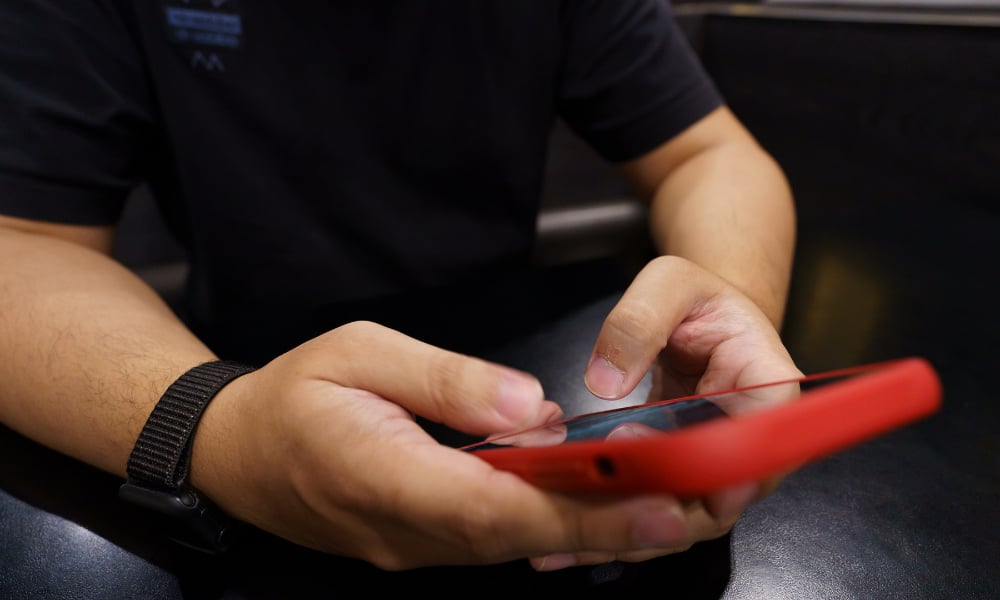
Juegos móviles para jugar en cualquier momento
Los juegos móviles ofrecen el escape perfecto durante los descansos, brindando una jugabilidad rápida y gratificante y una variedad de géneros para adaptarse a cualquier estado de ánimo, en cualquier momento.
Tendencias
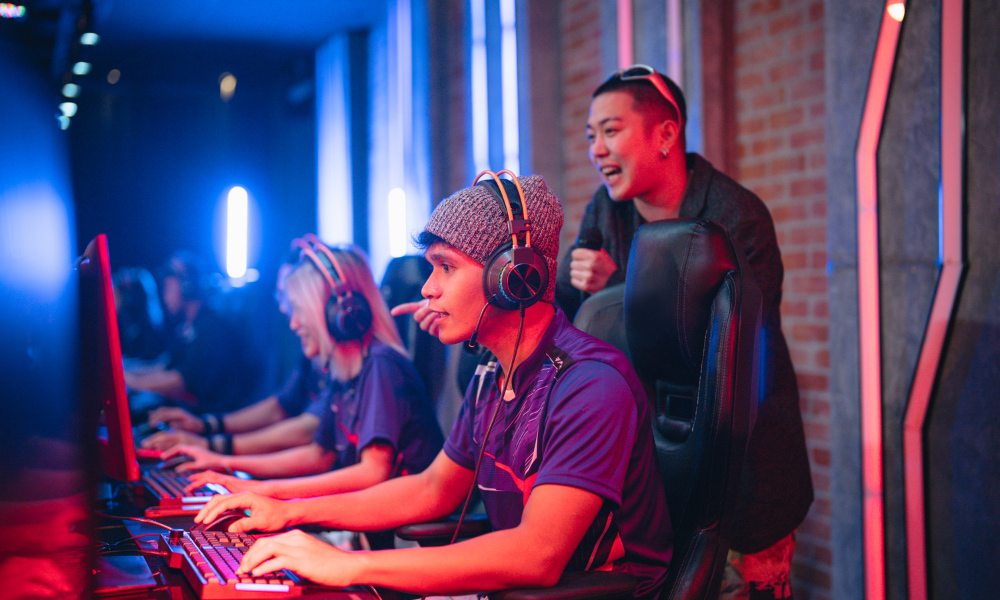
El auge de los eSports: el futuro de los juegos competitivos
El auge de los deportes electrónicos ha transformado los juegos competitivos en un movimiento global, impulsado por el trabajo en equipo, la tecnología y la comunidad.
Continúe Leyendo
Consejos para elegir el mejor juego de mundo abierto para ti
Encuentra el juego de mundo abierto perfecto para tu estilo de juego con consejos sobre exploración, sistemas de progresión, accesibilidad y funciones inmersivas para juegos móviles.
Continúe Leyendo
5 consejos para mejorar tu rendimiento en juegos de disparos
Mejora tu puntería, reflejos y estrategia de juego con estos prácticos consejos de disparos. Practica, adapta y desarrolla habilidades para triunfar en los juegos de disparos móviles.
Continúe LeyendoTambién te puede interesar

Estrategias de juego para ganar en Battle Royale: tácticas para móviles y consolas
Aprende las mejores estrategias de Battle Royale para planificar el drop, gestionar el inventario, el posicionamiento y el combate para mejorar tu juego y asegurar victorias.
Continúe Leyendo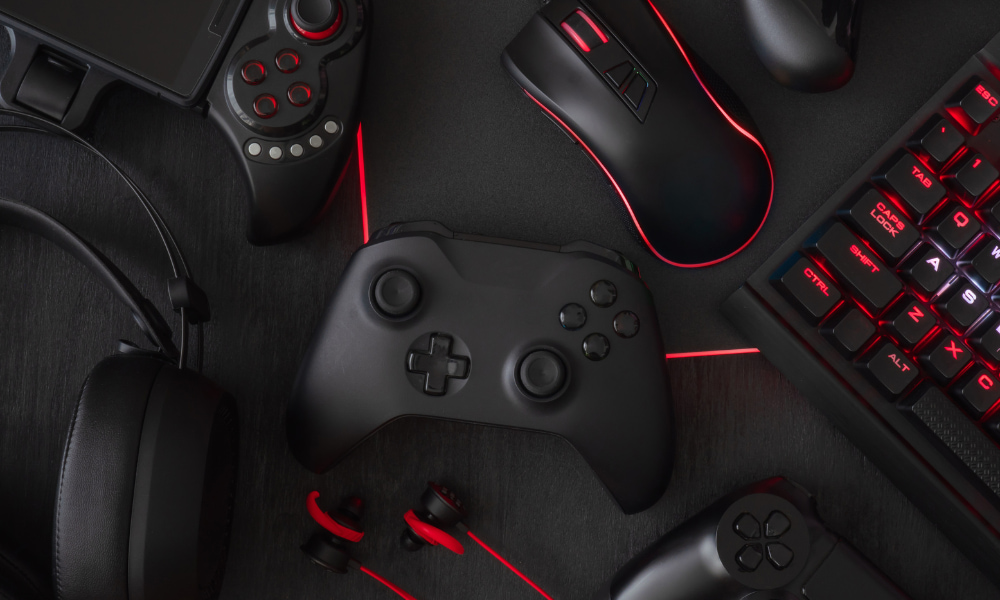
Consejos para mejorar tu coordinación y reflejos en juegos de acción
Mejora tu coordinación y reflejos en juegos de acción con estos ejercicios, consejos y técnicas para un juego más rápido y preciso.
Continúe Leyendo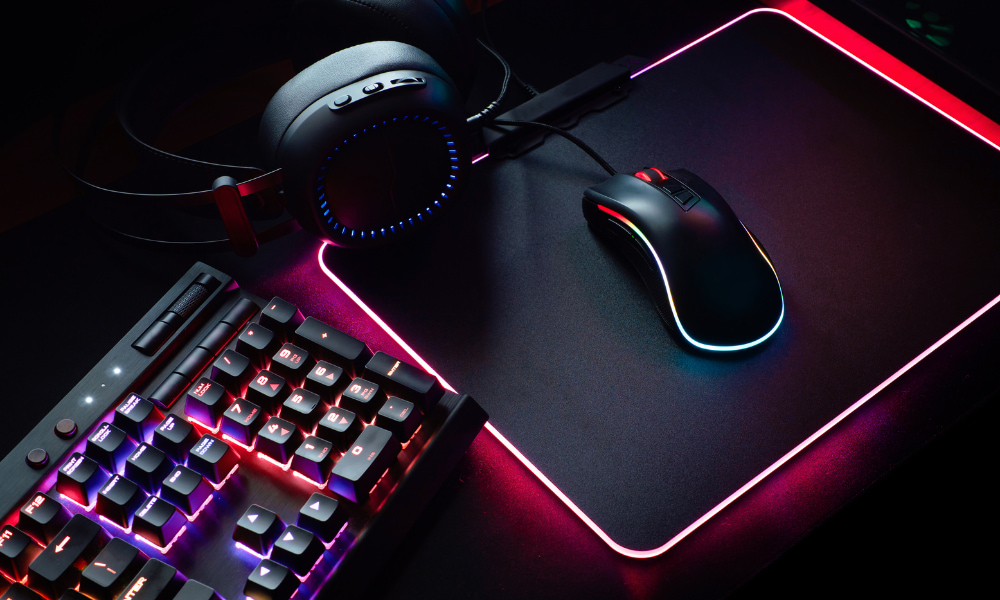
Cómo jugar mejor con el teclado y el ratón: consejos y trucos
Mejore su experiencia de juego con el teclado y el mouse con consejos sobre precisión, combinaciones de teclas personalizadas, ejercicios de reflejos y configuraciones ergonómicas para un mejor rendimiento.
Continúe Leyendo